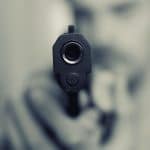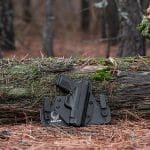Your hearing is one of the most precious resources you have. Unfortunately, damage to your inner ear may get worse as you get older and cause gradual hearing loss. This is a natural process associated with aging, but it could come early if you aren’t careful.
This is especially true if you regularly engage in shooting sports or hunting without investing in hearing protection. Gunshots often exceed 140 decibels, so it’s no surprise that they can cause permanent hearing damage if your ears are left unprotected.
You might not have ear protection readily available if you’re presented with an impromptu shooting opportunity. Luckily you can use toilet paper and cotton balls as quick stand-ins for basic ear protection. You’ve got other options available to you too if you just look around.
If you’re wondering how to make homemade ear plugs for shooting, consider the following tips.
Disclaimer: The content in this article is not medical advice nor is it suggesting to not seek out commercially available hearing protection solutions. You should seek a qualified medical professional for advice.
What Can I Use to Make Makeshift Earplugs?
There are plenty of makeshift earplugs for hunting that won’t do much to protect your ears, though. You need to strategically make ear protection that will keep your ears safe.
What materials can you use to make these earplugs? There are many different materials you can use and methods you may utilize. Some of the easiest include the following:
Toilet paper: You can create makeshift earplugs from toilet paper by simply bunching up several pieces and rolling them into a ball. You can then insert the ball into your outer ear.
Cotton balls: Cotton balls are one of the most common materials used for makeshift earplugs. If you don’t have cotton balls, you can use any other type of cotton that’s available.
Cloth: A small piece of towel, washcloth, or t-shirt can be torn off and balled up to use as earplugs.
Drug store earplugs: Most drug stores and supermarkets have small earplug kits that you can use at home. These are often intended to prevent damage from swimming, but they may help prevent hearing loss, too.
In the absence of professional hearing protection, you might be tempted to create some homemade hearing protection. You’re on the right track — something is almost always better than nothing when it comes to hearing protection.
How Do You Make Your Earplugs?
Making your earplugs might seem complicated if you’ve never done it before, but it’s a very simple process. You can craft homemade hearing protection from an array of items often found at home.
Simply use any of the materials mentioned earlier and shape the plug to make it easy to insert and retrieve.
You should be careful not to push it too far into your ear canal. Just rest it in the very outer cavity of your ear and stop pushing when you feel resistance.
Density is the key to optimizing the protection afforded by any homemade earplugs. Simply sticking a single cotton ball or piece of toilet paper into your ear is unlikely to offer much protection. However, if you bunch several pieces together tightly, you can maximize the protection they provide.
What Not to Do
Remember that you should never push your earplugs too far into your ear canal. Doing so can cause serious damage, including irritation of the eardrum lining and auditory canal obstruction.
You must shape your earplugs in a way that they do not enter your canal and cause damage. This would defeat the purpose of homemade hearing protection in the first place and put you at risk of permanent damage to your ears.
Steps to Make Your Own
Making your own makeshift earplugs for hunting is simple. You should follow these steps to ensure that your ears aren’t left unprotected:
- Select the best material that’s immediately available
- Cut it down to an earplug-friendly size if necessary
- Mold it to the shape of an earplug
- Gently push the homemade hearing protection into your ear
These steps can help prevent hearing damage even when you’re around guns or any other high-decibel event.
Protect Your Precious Ears and Hearing
You only get two ears, so it’s essential to protect them. Hearing loss may be part of life, but you can take steps to avoid unnecessary damage to your ears.
With the right homemade ear plugs for shooting, you can enjoy a day on the range without worrying about its impact on your hearing.
Just be sure to invest in a pair of professional earplugs and keep them on hand for next time.





